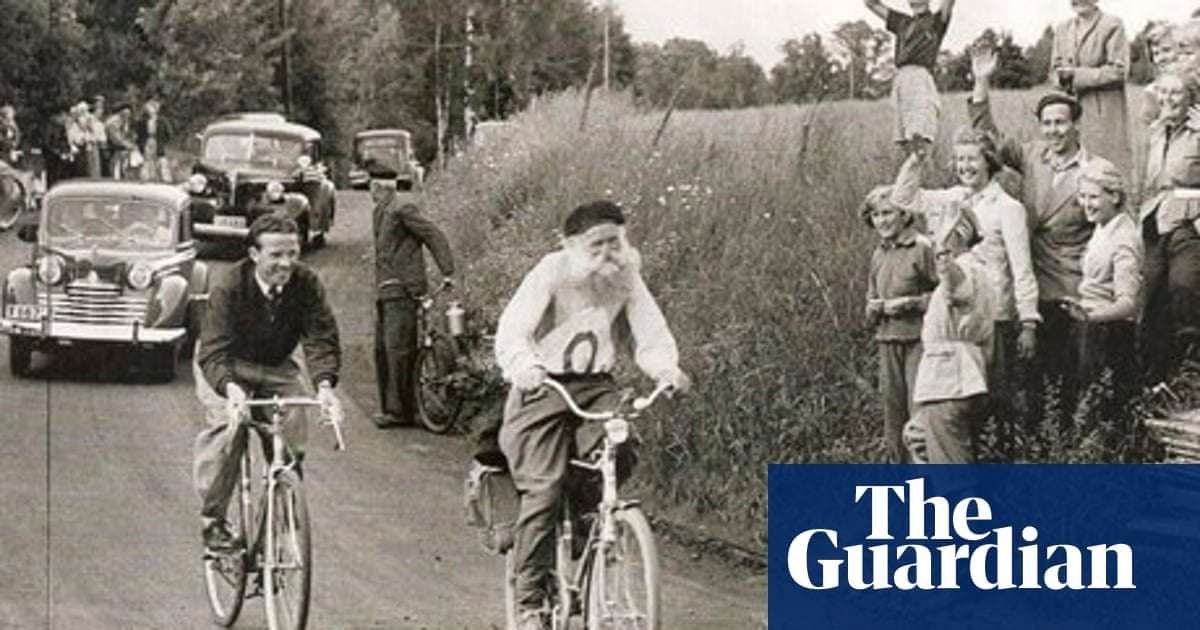One hundred years from now, this story will be the sort we'll tell our kids when they're tucked up under the duvet and we've given into telling them, for the 47th time, about the long-bearded grandpa who won a 1,000-mile bicycle race.
It involves the romanticism that tends to, after a time, become shrouded in myth. One person will say it was 1,000 miles he rode, and the next might say it was 1,000km. One might say he was 66 years old, when someone else heard that, no; he rode 66 miles at 1,000 years of age. Anyway, it goes something like this.
In 1951, Gustaf Håkansson signed up for an endurance race traversing virtually the entirety of Sweden, only for his submission to be rejected because of his age. It was determined that the 66-year-old had neither the strength nor the stamina to compete with the 50 other racers half his age. Nevertheless, having ridden 600 miles to get to the starting line, Gustaf was there on race day in the saddle of his roadster complete with mudguards, a headlamp (which is what eventually helped him emerge victorious) and panniers.
Due to the volume of racers, Gustaf crossed the starting line about 20 seconds after the race had started. He had donned a homemade bib with the number 0, probably to indicate to the officials he wasn't joking and that he was indeed expecting to be treated as a participant. This was however dependant on them seeing the bib under the old man's rather impressive long, flowing beard.
Five days, five hours and 1,000 miles later, spectators waiting to cover the winner in eternal glory spotted a figure rounding the last corner. Amid their cheers they went to greet him and offer him food and water, so exhausted he must be after such an arduous slog through Sweden. Expecting to embrace a 20 or 30-something slender man bending over the handlebars during the last push, the receiving crowd were understandably more than a little perplexed to watch a frail old gentleman wobble over the line on a rusty old roadster with a flat tyre. Not only that, but a full day ahead of the next rider.
The truth is, Håkansson cheated. Well, he didn't actually cheat, seeing as he wasn't an official competitor, but he did neglect one rule the others were forced to follow.
Gustaf didn't sleep. As part of race regulations, competitors were expected to meet and stop at a checkpoint at the end of the day to recharge and restart the next morning. Instead, Gustaf took an hour to rest before setting off again in the middle of the night. The time allowed him to make up for the 10 miles he was behind to put, after 300 miles, a 20-mile gap between him and the rest of the pack.
Gustaf was winning, and his efforts went public. There was less interest placed on the race itself, however, as people were more fascinated as to whether Gustaf would at any time keel over and die. Surely he couldn't keep up that amount of strain on his little old heart for too much longer. How was he going to maintain a good pace with virtually no sleep? Gustaf became the centre of national attention.
After three days and only five hours' sleep, Gustaf was leading the field by more than 120 miles. At one point the police tried to persuade him to stop for a medical examination, but he only laughed – and pedalled on.
Eventually, with only 800 yards or so to go, "steel grandpa" (as he became known in the villages he'd passed through) came to an abrupt halt. But it wasn't sheer exhaustion that had stopped him – the old man's bicycle had suffered its first and only flat tyre.
Unperturbed, Gustaf dismounted and set towards the finish line where, with only a few yards to go, he remounted to cross the line at 2:15pm on July 7, 1951.
Despite the albeit unofficial victory, a subsequent audience with the king of Sweden and generally being showered in fame and honour, Gustaf's greatest satisfaction came from proving wrong the doctors who had thought he was better suited in a rocking chair than he was in a saddle. The Steel Grandpa continued to ride bicycles until his death in 1987 at the age of 102.
If that isn't a testament to the health benefits of riding a bike, then I don't know what is.

DisgruntledMax on August 18th, 2020 at 23:13 UTC »
“Sir! but this is a race for 4th graders to raise money for their school district!”
unsignedcharizard on August 18th, 2020 at 22:51 UTC »
Can someone clarify whether or not he violated the rules of the race?
The article says:
Was it required or just expected?
Ul71 on August 18th, 2020 at 21:59 UTC »
Coincidently, he also discovered methamphetamines, three days prior.